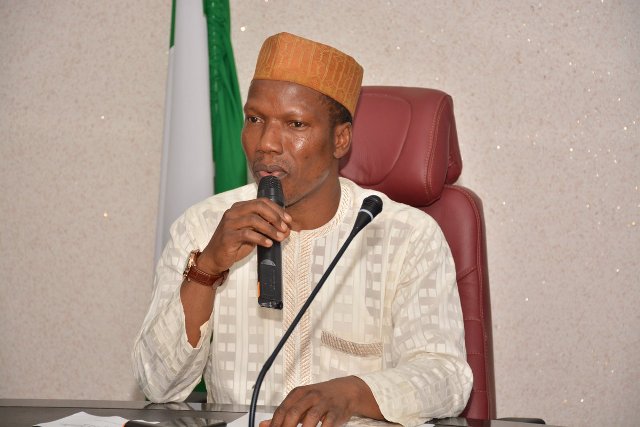The managing director of the Federal Airports Authority of Nigeria (FAAN), Capt Rabiu Yadudu, has said that Nigeria’s domestic carriers spent about N1.25 trillion in 2021 to maintain their aircraft in overseas maintenance, repair and overhaul (MRO) facilities.
Yadudu disclosed this on Tuesday at the maiden edition of FAAN National Aviation Conference (FNAC) held in Abuja under the theme ‘Advancing the frontiers of possibilities for safe, secure and profitable air transport.’
The managing director said such huge sum could have been domiciled in Nigeria if the country had MRO facilities that could adequately cater for all types of aircraft maintenance.
To carry out a C-check on Boeing 737 aircraft or its category, airlines expend at least $1.8 million. The C-check is carried out on aircraft every 18 months.
Yadudu lamented that Nigeria’s potential and capacity in the global air transport industry is being grossly under-utilised.
He stressed that if stakeholders in the industry were indeed desirous of attaining the status of major players in the global aviation sphere, it is high time the country integrated backward to repose and move the industry forward.
He explained that the focus of the conference was on Nigeria because the country has the largest fleet of aircraft within the sub-region.
“It was reported that Nigeria lost $2.5 billion (about N1.25 trillion) in MRO investments to neighbouring countries. Having such investments here would have created more employment opportunities for Nigerians, revenue generation and training of technical personnel for maintenance of aircraft.
“The inter link and value chain between the air transport, tourism and hospitality industry for economic growth cannot be over emphasized. Today, the Eiffel Tower in Paris, London bridge, Dubai Mall, Burj Khalifa, the British museum in United Kingdom, etc have all been consciously developed into major tourist attractions that drive passenger traffic to those destinations and by implication attract businesses and generate employments for the locals and foreigners alike,” he said.’
Nevertheless, the managing director said the conference would avail investors and entrepreneurs the opportunities to invest in several areas in the sector.
In his remarks, the minister of aviation, Mr. Hadi Sirika disclosed in his goodwill message that President Muhammadu Buhari would soon give his assent to the Civil Aviation Bill passed by the national assembly
The minister assured that with the president’s assent to the bill, Nigeria’s aviation industry would grow rapidly, while more opportunities would also be created for all stakeholders and investors.
He pointed out that the aviation industry roadmap as approved by the federal government was intentionally fashioned after the public private participation (PPP) model with the plan to grow the entire sector.
He challenged investors to tap into the myriads of opportunities in the sector, especially with the recently approved 12, 000 hectares of land provided by the Federal Capital Territory Administration for implementation of the aviation roadmap.
Some item in the roadmap include MRO, aviation leasing company, national carrier, aerospace university, airport concession and aerorropolis among others.
“We are ready to pursue all the components of the roadmap. Every part of the roadmap has reached advanced stages and all would be delivered before the end of this administration. Aviation industry in Nigeria is a goldmine, but it is still virgin.
“Globally, the core variables that sustain aviation industry are safety and security. We must continue to sustain these in the country,” Sirika added.
In his remarks, the first Nigerian pilot, Capt. Bob Hayes, congratulated FAAN for putting together the conference to discuss challenges militating against the efficiency of the aviation industry, as well as proffering long lasting solutions to the challenges.
Hayes stated that all the government’s roadmap for the sector, if well-implemented, would grow the industry and called on all investors to partner with the government in to ensure industry growth.


























































